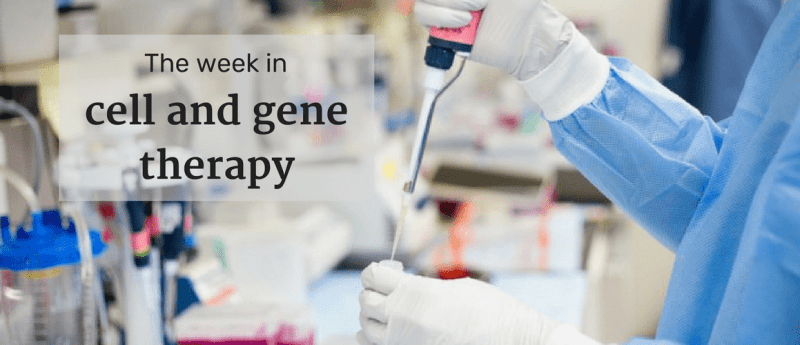Cell therapy weekly: Allogeneic cell transplantation more effective than cord blood in leukemia

This week: Three patents for off-the-shelf allogeneic therapy and AI system will tackle cell therapy quality control.
The news highlights:
Allogeneic cell transplantation more effective than cord blood in leukemia
Three patents for off-the-shelf allogeneic therapy
AI system will tackle cell therapy quality control
Allogeneic cell transplantation more effective than cord blood in leukemia
New research published in Nature indicates that in the treatment of acute myeloid leukemia (AML), allogeneic hematopoietic cell transplantation (HCT) could lead to better outcomes compared with transplantation of umbilical cord blood (CBT). In a retrospective, registry-based study of 2963 patients, patients treated with HCT had a lower incidence of relapse, were more likely not to suffer graft-versus-host-disease (GVHD) and had a better chance of survival overall.
“These results are in contrast with those observed in AML patients in complete remission with or without minimal residual disease, where CBT did at least as good as [unrelated allogeneic]-HCT,” the authors wrote in the study.
Three patents for off-the-shelf allogeneic therapy
Rubius Therapeutics, Inc. (MA, USA) has been awarded three patents covering composition and methods of use for its proprietary cellular therapy. RTX-134 is an allogeneic cell therapy for oncology that is designed to be used “off-the-shelf” and is being trialed in a Phase Ib study with enrollment planned in 2019 Q2 and data expected in the second half of 2019.
“The issuance of these key patents strengthens our growing intellectual property portfolio and demonstrates our leadership position in the field of cellular therapy,” said Pablo J. Cagnoni, chief executive officer of Rubius Therapeutics. “The RTX-134 composition of matter and methods of use patents, along with our immuno-oncology patent, highlight the breadth of both our platform and our patent estate.”
AI system will tackle cell therapy quality control
LPIXEL Inc. and Astellas Pharma Inc. (both Tokyo, Japan) will develop an artificial intelligence (AI)-based system for cell culture quality control using LPIXEL’s AI-instilled image analysis solution, IMACEL Lab. LPIXEL, a University of Tokyo (Japan) spin-out, developed IMACEL Lab, which is a cloud-based bioimage analysis platform utilized for cell selection and management through morphological analysis and image classification. Careful cell selection and maintenance is crucial in producing cell-based therapies.
Writing in a 2019 paper, LPIXEL’s Chief Technology Officer, Natsumaro Kutsuna, et al commented “…this platform is an accessible and potentially powerful tool for the quantitative evaluation of bioimages that will lower the barriers to life science research”.
For more weekly cell therapy news, read previous editions of the cell therapy weekly.